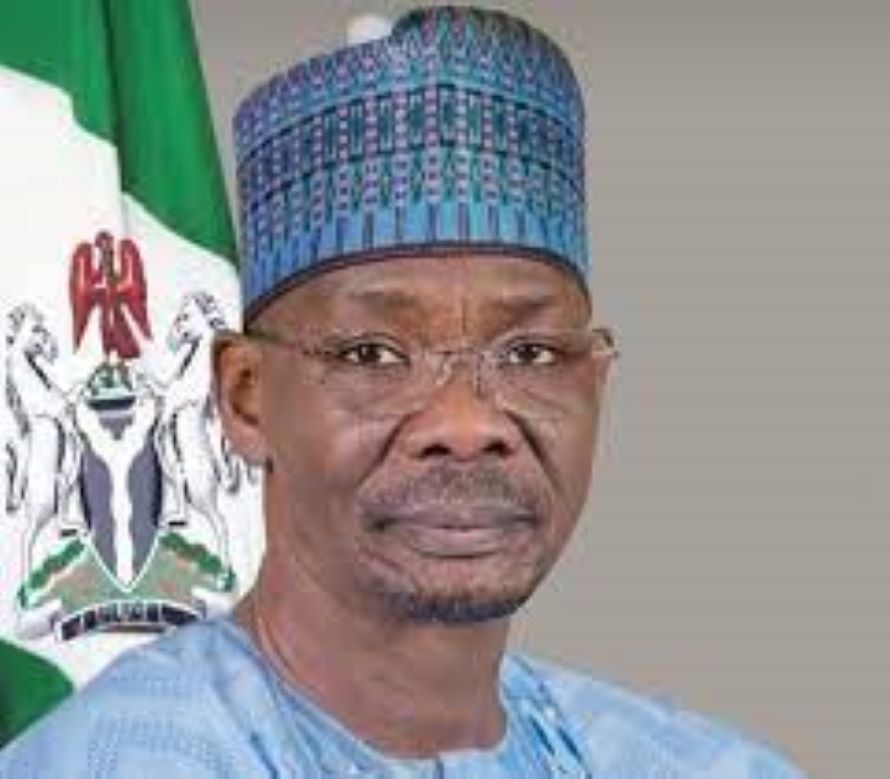The Governor of Nasarawa state, Abdullahi A. Sule has said the Muhammadu Buhari administration spent more than the $19 billion used in building the Dangote Refinery in the maintenance of the country’s refineries.
Governor Sule said this Thursday while featuring on Channels Television Sunrise Daily, noting that the payments of subsidy was occasioned by the country’s non-functional refineries.
Nigeria has refineries in Kaduna, Port Harcourt, and Warri with none of them functioning.
Sule’s revelation came days after the House of Representatives revealed over N11trillion was expended on the moribund refineries in the last three years.
Speaking on the programme, Sule, also a former staffer of Dangote Group, said: “Look at how much the President Buhari administration spent on fixing the refineries. In the eight years, he spent more money than the $19 billion that Dangote spent in building a refinery, that is one and half times the size of our three refineries combined.”
While admitting the poor handling of the situation by the government, the governor said: “From the government side, I think we didn’t do a good job. When the (former) President (Buhari) came in, in 2015 prices of crude oil dropped by less than 30 dollars. At that time there was zero subsidy.
“Our three refineries in Nigeria today have a total of 450,000 barrels per day, Dangote is 650,000. He spent $19 billion on building it. We spent, not building a new one, but in maintaining these refineries more than $19 billion in eight years, yet they have not been maintained.”
Dangote Refinery, Africa’s biggest oil refinery, launched its building plans in 2017 and the project commissioned May 2023 in the twilight of the Buhari-led government.
*Maintaining Refinery Components’
Governor Sule also lamented the complexity of maintaining the refineries due to their diverse components.
He said: “The refinery is actually a component for water, crude, and diesel, about five or six different components that constitute a refinery. The moment the government says we are going to spend $2 billion this year on the refinery. The $2 billion is spent and as far as the President is concerned, they have given $2 billion.
“Now, when it goes to the three refineries that we have in Port Harcourt, Warri, and Kaduna; then they say, you now take $700 million, you now take $800 million – by the time they take that, it goes to fix maybe only one component out of the four components that are all bad.”
Sule said the ideal thing to do would have been to allocate the major funds to one of the refining states to fix it totally before allocating the remainder to the other states.
“So, zero work is done. These are the true realities of what is happening, and that is why none of the refineries is working. These are truly the problem, we have not really managed this thing well,” the governor further said.
*RMAFC tackles NNPCL
In a related development, the Revenue Mobilisation Allocation and Fiscal Commission (RMAFC) has backed the fuel subsidy removal announced by the Bola Ahmed Tinubu administration.
The RMAFC also said the Nigerian National Petroleum Company Limited (NNPCL) claims of spending N8,480,204,553,608.13 for fuel subsidy since January 1, 2022, to date was yet to be reconciled.
Describing the removal as long overdue, the RMAFC Chairman, Mr Mohammed Bello Shehu, said fuel subsidies posed a major challenge to the economic growth and development of the country.
He stated: “The country can no longer sustain fuel subsidies whose demerits far outweigh its benefits to the citizenry. It is saddening to note that since January 1, 2022, to date, the Nigerian National Petroleum Company Limited (NNPCL) has not been contributing to the Federation Account due to the claimed subsidy payments.
“The total amount withheld by the NNPCL as claimed subsidies for this period amounted to N8, 480,204, 553,608.13 as reported by the Office of the Accountant General of the Federation (OAGF), which is yet to be reconciled by the RMAFC, OAGF, and NNPCL.”
The RMAFC boss also said the lack of transparency in subsidy transactions and the global determination of crude oil prices made it unwise to sustain phantom subsidy payments at the expense of other critical sectors of the economy.
Shehu recalled that the Commission had consistently expressed its position on the issue of subsidy removal since the time of the late Hamman Tukur, who chaired the agency during the administration of former President Olusegun Obasanjo.
As one of the 14 Federal Executive Bodies established by the 1999 Constitution (as amended), RMAFC has the constitutional mandate to monitor the accruals to and disbursement of revenue from the Federation Account and provide fiscal efficiency advice to the Federal and State Governments.
While commending Tinubu for the bold step, he said the removal “will eliminate the uncertainty surrounding the subsidy regime and free up funds for critical national development projects such as affordable transport systems, investment in the education and healthcare sectors, infrastructural development, and the resuscitation of domestic refineries to reduce dependence on imported fuel.”
The RMAFC boss also commended the Buhari administration for creating an enabling environment for the successful take-off of the world’s largest private refinery built by Alhaji Aliko Dangote.
He expressed hope that the refinery’s operationalisation would lead to hassle-free oil production and distribution in the absence of the subsidy regime.hion the impact of the new policy.
The commission similarly called for deterrent measures to be taken against economic saboteurs who contributed to the nation’s adversity in accordance with the existing laws of the federation.



